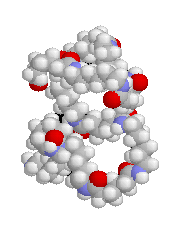Leading Uses Polymers: Enhancing Everyday Products
Exploring the Varied Applications and Advantages of Polymers in Different Industries
Polymers, with their varied range of residential properties and capabilities, have actually come to be vital in different sectors, each enjoying one-of-a-kind benefits from their application. From enhancing security and efficiency in the automobile sector to transforming medical gadgets in the medical care market, polymers play a pivotal duty.
Automotive Sector Applications
Polymers play a critical duty in enhancing the performance and longevity of different components within the auto industry. These flexible products are extensively utilized in the production of various parts, ranging from indoor parts to under-the-hood applications. One famous use of polymers in the vehicle market is in the production of lightweight parts. By changing traditional metal parts with polymer-based options, cars can achieve enhanced fuel effectiveness without endangering on stamina or safety and security.

Health Care Industry Benefits
In various health care applications, the advantages of making use of polymers are commonly acknowledged for their diverse variety of useful residential properties. Polymers play a crucial function in the health care sector because of their flexibility, biocompatibility, and cost-effectiveness. Among the key benefits of polymers in health care is their ability to be customized to certain demands, such as adaptability, sturdiness, and biodegradability, making them optimal for a wide variety of medical applications.
Polymer-based materials are thoroughly utilized in clinical tools, such as catheters, implants, prosthetics, and medication delivery systems, because of their biocompatibility and capacity to resemble all-natural cells. These materials can minimize the threat of sensitive reactions or rejections, boosting individual safety and outcomes. Additionally, polymers are light-weight, making them suitable for wearable clinical devices and ensuring client comfort.
In addition, polymers make it possible for the development of ingenious treatment techniques, such as hydrogels for cells design and nanocomposites for targeted medicine distribution. Their convenience of handling and sanitation makes them crucial for preserving high criteria of health in medical care setups. In general, the varied advantages of polymers contribute significantly to improvements in clinical innovation and person care.
Ecological Benefits of Polymers

In addition, polymers can contribute to energy cost savings because of their light-weight nature. In markets such as transport, light-weight polymer products can help in reducing gas intake and greenhouse gas emissions. Furthermore, polymers can enable the development of energy-efficient products such as insulation materials that improve energy conservation in buildings.
Moreover, polymers play a critical function in minimizing water contamination. As an example, making use of polymer-based filtering systems can successfully eliminate contaminants and pollutants from wastewater, protecting water resources and communities. Generally, the ecological advantages of polymers make them important possessions in advertising sustainability and environment-friendly techniques throughout various sectors.
Polymers in Electronics and Technology
Thinking about the raising need for ingenious and lasting options in modern markets, the integration of innovative polymer innovations in the realm of electronic devices and technology has actually become a pivotal approach for driving effectiveness and efficiency. Polymers have revolutionized the electronic devices industry by making it possible for the production of lighter, extra versatile, and durable digital gadgets. From smart devices to medical tools, polymers play a critical function in boosting product style and functionality.
One considerable advantage of polymers in view publisher site electronics is their shielding properties, which assist shield fragile digital components from ecological factors and electric interference. In addition, polymers are vital in the growth of versatile display screens, wearable technology, and published electronics, providing countless possibilities for creating clever and interconnected tools.
Moreover, using polymers in digital product packaging has resulted in innovations in miniaturization and thermal administration, improving the general efficiency and integrity of digital systems. As technology check this site out continues to progress, the versatility and versatility of polymers will most certainly drive further development in the electronic devices market, forming the future of modern technology.
Duty of Polymers in Building And Construction and Infrastructure
Polymers offer countless benefits in the building industry due to their convenience, toughness, and cost-effectiveness. One essential role of polymers in building and construction is their usage in finishes and sealants, providing defense against environmental variables such as wetness, UV radiation, and rust.
Furthermore, polymers play a vital duty in lasting building methods by allowing the advancement of energy-efficient frameworks. Insulating materials made from polymers aid control interior temperature levels, reducing the requirement for heating and cooling systems and ultimately lowering power intake. The usage of polymer-based compounds in framework tasks such these details as bridges and roadways boosts their durability and reduces maintenance prices. On the whole, the incorporation of polymers in building and infrastructure showcases their considerable effect on modern engineering techniques.
Conclusion
In final thought, polymers play a critical duty in numerous markets such as auto, healthcare, ecological, electronics, and building. From improving fuel performance in vehicles to boosting clinical gadgets, polymers supply various advantages.